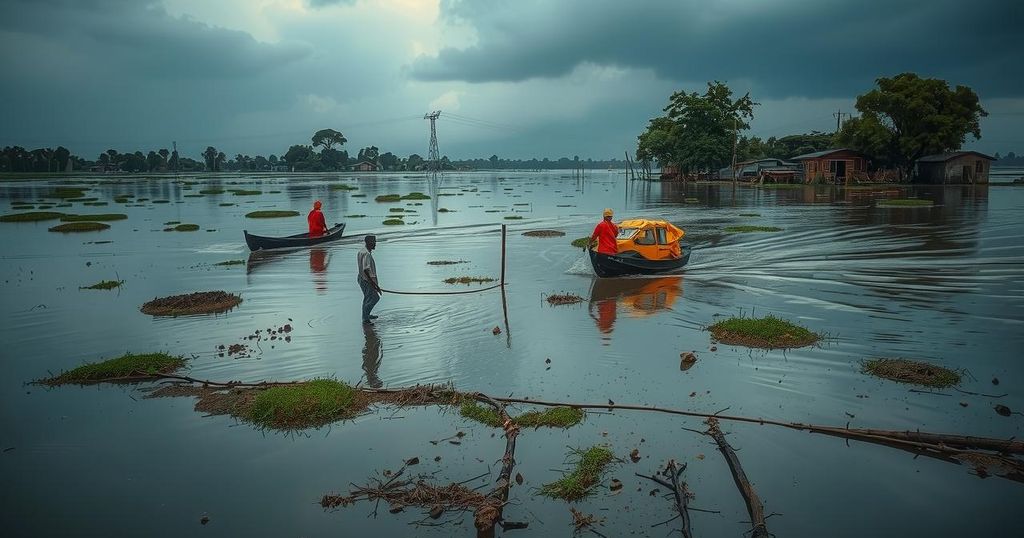Severe Flooding in South Sudan: WHO Takes Action to Address Health Crisis
South Sudan is facing severe flooding that has displaced over 226,000 people and affected approximately 890,000 individuals, leading to a worsening health crisis. The WHO is mobilizing resources, distributing emergency health kits, and collaborating with local authorities to manage healthcare needs amidst the severe humanitarian challenges while emphasizing the importance of resilience to climate change.
South Sudan is currently grappling with unprecedented flooding that has severely impacted several regions, displacing over 226,000 individuals and affecting 42 of the nation’s 78 counties. Key infrastructure, including 58 submerged health facilities, has exacerbated the humanitarian crisis, overwhelming communities already struggling to cope. As of October 4, 2024, the floods have afflicted approximately 890,000 people across affected counties. The situation is worsened by an influx of nearly 800,000 refugees and returnees from neighboring Sudan, compounding existing health challenges. Rising cases of malaria, suspected cholera incidents in Renk County, and snake bites have added to the healthcare crisis. Dr. Humphrey Karamagi, WHO Representative in South Sudan, described the scenario as creating a “heightened state of vulnerability due to multiple shocks.” In response, the World Health Organization (WHO) has mobilized efforts, distributing approximately 88 metric tonnes of emergency health supplies that can provide treatment for more than 870,000 people. This includes interagency health kits, cholera treatment facilities, and antimalarial medications. Furthermore, 20 cholera investigation kits and 9,200 rapid diagnostic tests have been prepositioned for immediate evaluation and response. The WHO is collaborating with the Ministry of Health to scale their response amid this ongoing health crisis. Initial needs assessments have been initiated to gather crucial data that will assist in managing the emergency. The organization is committed to working alongside local authorities to protect health facilities and ensure essential medical supplies reach safer locales. Simultaneously, WHO is emphasizing the importance of resilience against climate-related health challenges. The organization is advocating for sustainable investments that will fortify health infrastructure and communities against future climate shocks, emphasizing the need for robust systems to address health-related vulnerabilities caused by climate change.
South Sudan is experiencing some of the most severe flooding in years, a phenomenon exacerbated by climate change that disrupts local ecosystems and stretches the capacity of communities to manage crises. The recent floods have not only caused extensive damage to infrastructure but have also deteriorated health conditions in a country that is already facing significant humanitarian challenges. The World Health Organization’s involvement underscores the need for urgent assistance in addressing both the immediate health impacts and the long-term effects of climate change on public health strategies in the region.
In summary, the flooding in South Sudan has created a complex humanitarian and health crisis, adversely affecting hundreds of thousands. The WHO’s response, which includes the provision of emergency health kits and the establishment of robust health systems to address climate impacts, highlights a multi-faceted approach aimed at reinforcing health resilience. Continued monitoring and strategic collaboration with local authorities are essential in navigating this challenging landscape and mitigating future risks.
Original Source: www.afro.who.int




Post Comment